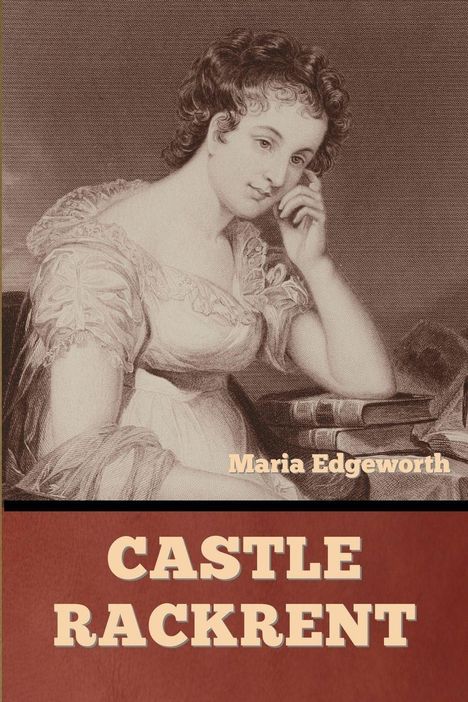Maria Edgeworth: Castle Rackrent, Kartoniert / Broschiert
Castle Rackrent
(soweit verfügbar beim Lieferanten)
- Verlag:
- Bibliotech Press, 11/2025
- Einband:
- Kartoniert / Broschiert
- Sprache:
- Englisch
- ISBN-13:
- 9798897733200
- Artikelnummer:
- 12559839
- Umfang:
- 132 Seiten
- Gewicht:
- 226 g
- Maße:
- 229 x 152 mm
- Stärke:
- 8 mm
- Erscheinungstermin:
- 24.11.2025
- Hinweis
-
Achtung: Artikel ist nicht in deutscher Sprache!
Weitere Ausgaben von Castle Rackrent |
Preis |
|---|---|
| Buch, Kartoniert / Broschiert, Englisch | EUR 34,90* |
| Buch, Gebunden, Englisch | EUR 59,90* |
Klappentext
Maria Edgeworth's Castle Rackrent is widely considered the first true regional novel in English literature and a forerunner of both the historical novel and the Anglo-Irish Big House novel.
Told through the voice of the loyal but biased family retainer Thady Quirk, the story presents a satirical history of the Rackrent estate and its succession of incompetent landlords-each more wasteful, foolish, or self-destructive than the last. Thady's seemingly naive narration adds humor while also exposing the deep social and economic tensions between Anglo-Irish landlords and their Irish tenants.
Key features of the novel include:
Sharp social satire directed at aristocratic mismanagement
Innovative narrative style, using an unreliable narrator
Richly detailed depiction of Irish customs, dialect, and rural life
Early exploration of colonial power dynamics in Ireland
Through comedy and vivid characterization, Edgeworth critiques the decline of the landlord class and highlights the need for social reform. Castle Rackrent remains influential for its originality, realism, and pioneering use of regional identity in fiction.
About the Author
Maria Edgeworth (1768-1849) was an Anglo-Irish novelist, education theorist, and one of the most influential literary figures of the late eighteenth and early nineteenth centuries. Born in Oxfordshire, she spent most of her life at the family estate in County Longford, Ireland, where her writing was shaped by both the intellectual milieu of her father, Richard Lovell Edgeworth, and the social realities of rural Irish life.
Edgeworth is widely regarded as a pioneer of the regional novel, using vivid local detail and carefully observed dialect to portray Irish society with a realism that was innovative for her time. Her early works, including Castle Rackrent (1800), combined satire, social commentary, and narrative experimentation, earning praise from contemporaries such as Sir Walter Scott, who later credited her as an inspiration for his own historical fiction.
Alongside fiction, Edgeworth was deeply invested in educational reform, collaborating with her father on treatises that emphasized rational upbringing, moral instruction, and the importance of nurturing children's natural curiosity. Her novels often reflected these pedagogical concerns, blending entertainment with moral purpose.
Despite the political upheavals of her era-including the Act of Union and recurring tensions between Anglo-Irish landlords and Irish tenants-Edgeworth wrote with a commitment to empathy, practical reform, and cross-cultural understanding. Her clear-sighted, humane portrayals helped shape the early development of realist fiction and left a lasting mark on Irish and British literature. Maria Edgeworth remains celebrated today for her skillful narrative voice, progressive views on education, and nuanced exploration of national identity.
Mehr von Maria Edgeworth
-
Maria EdgeworthTales and Novels; In Ten VolumesBuchAktueller Preis: EUR 119,90
-
Maria EdgeworthTales and Novels; In dix Volumes, PatronageBuchAktueller Preis: EUR 119,90
-
Maria EdgeworthHelen; From "Tales and Novels"BuchAktueller Preis: EUR 109,90
-
Maria EdgeworthThe AbsenteeBuchAktueller Preis: EUR 20,33






